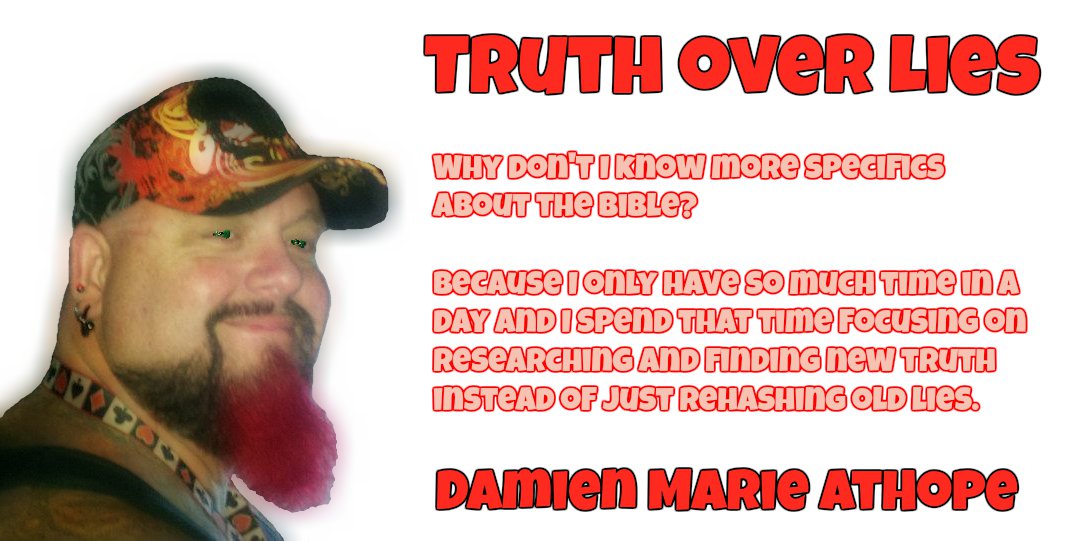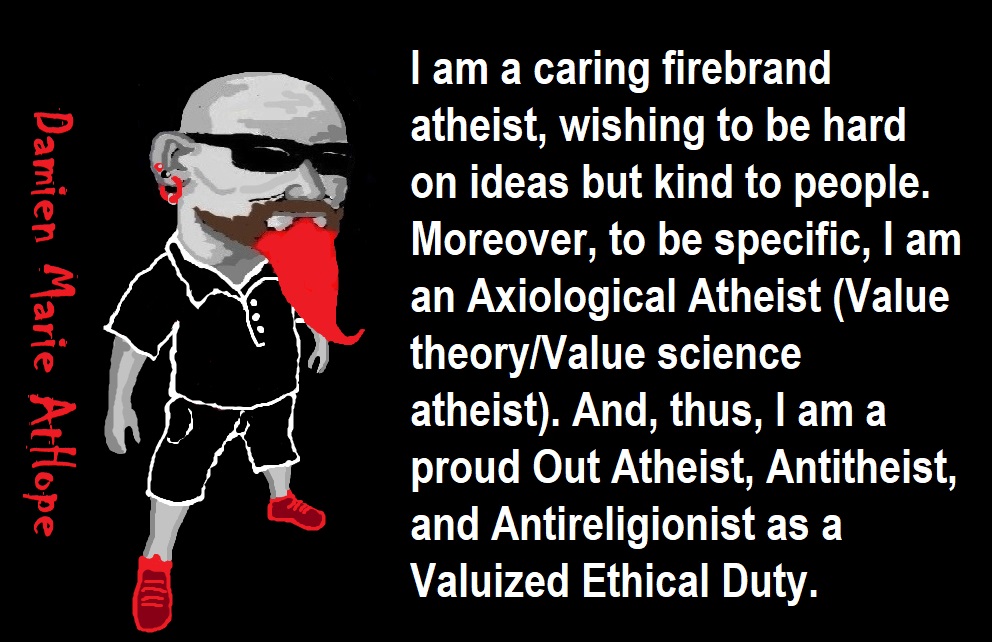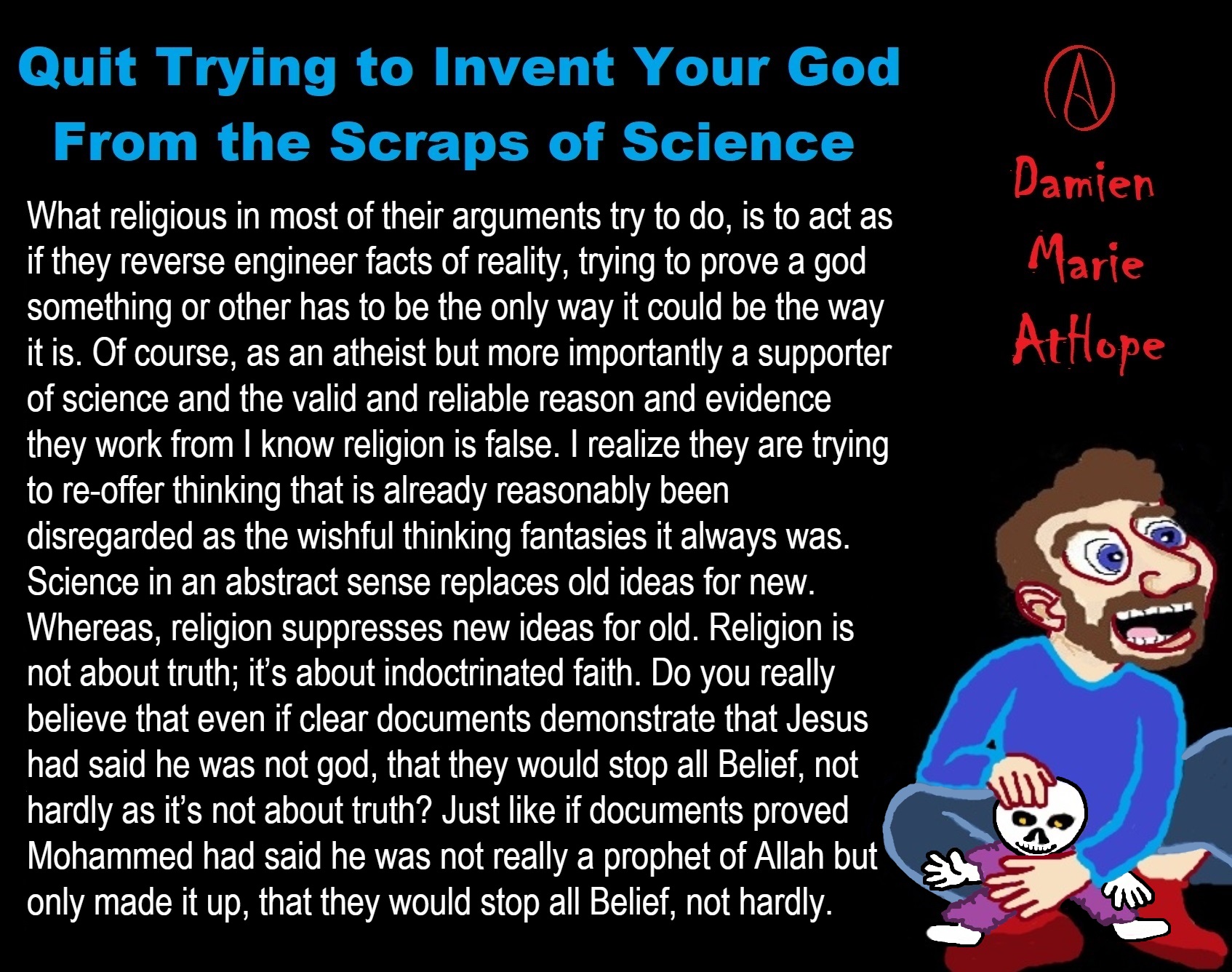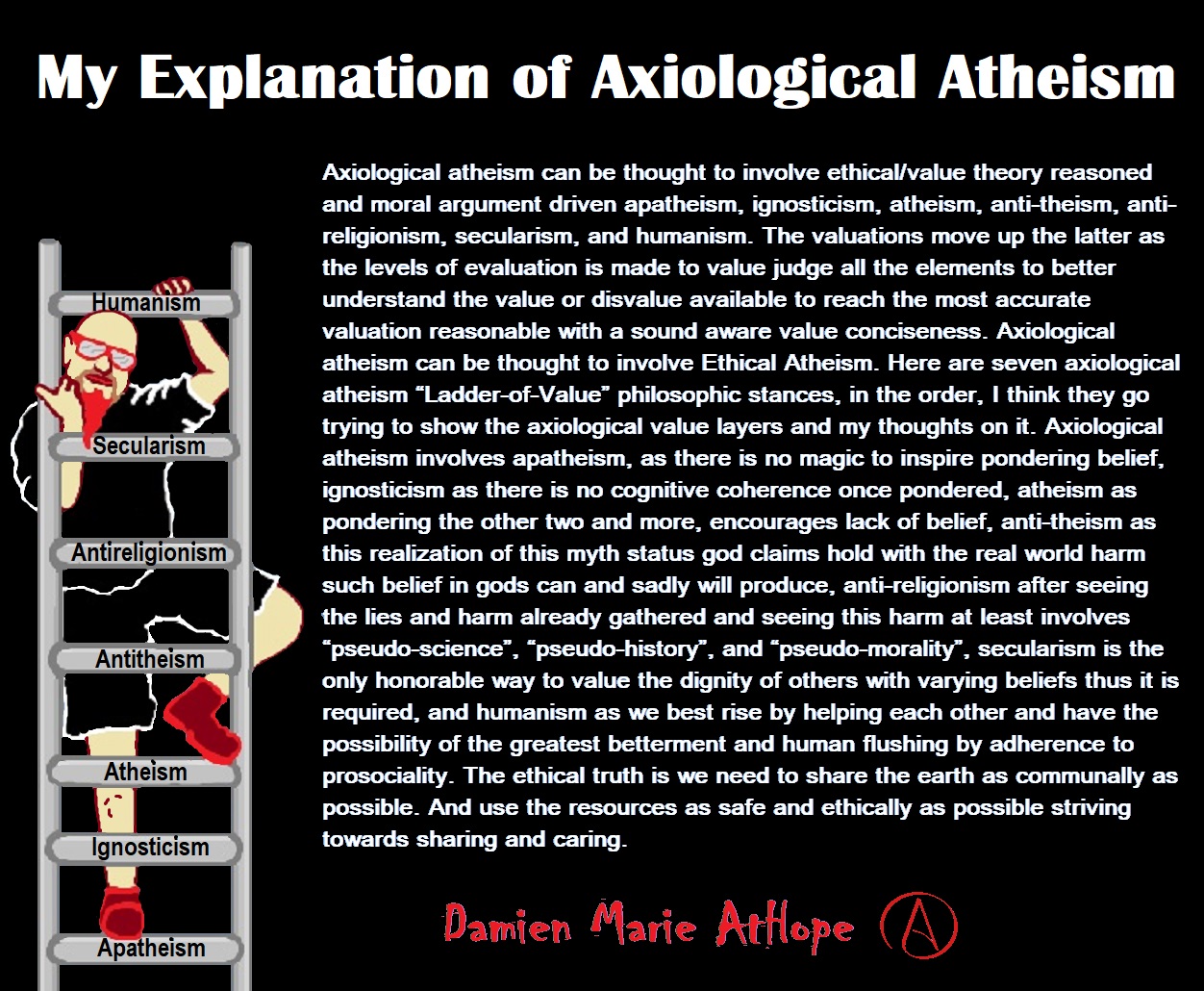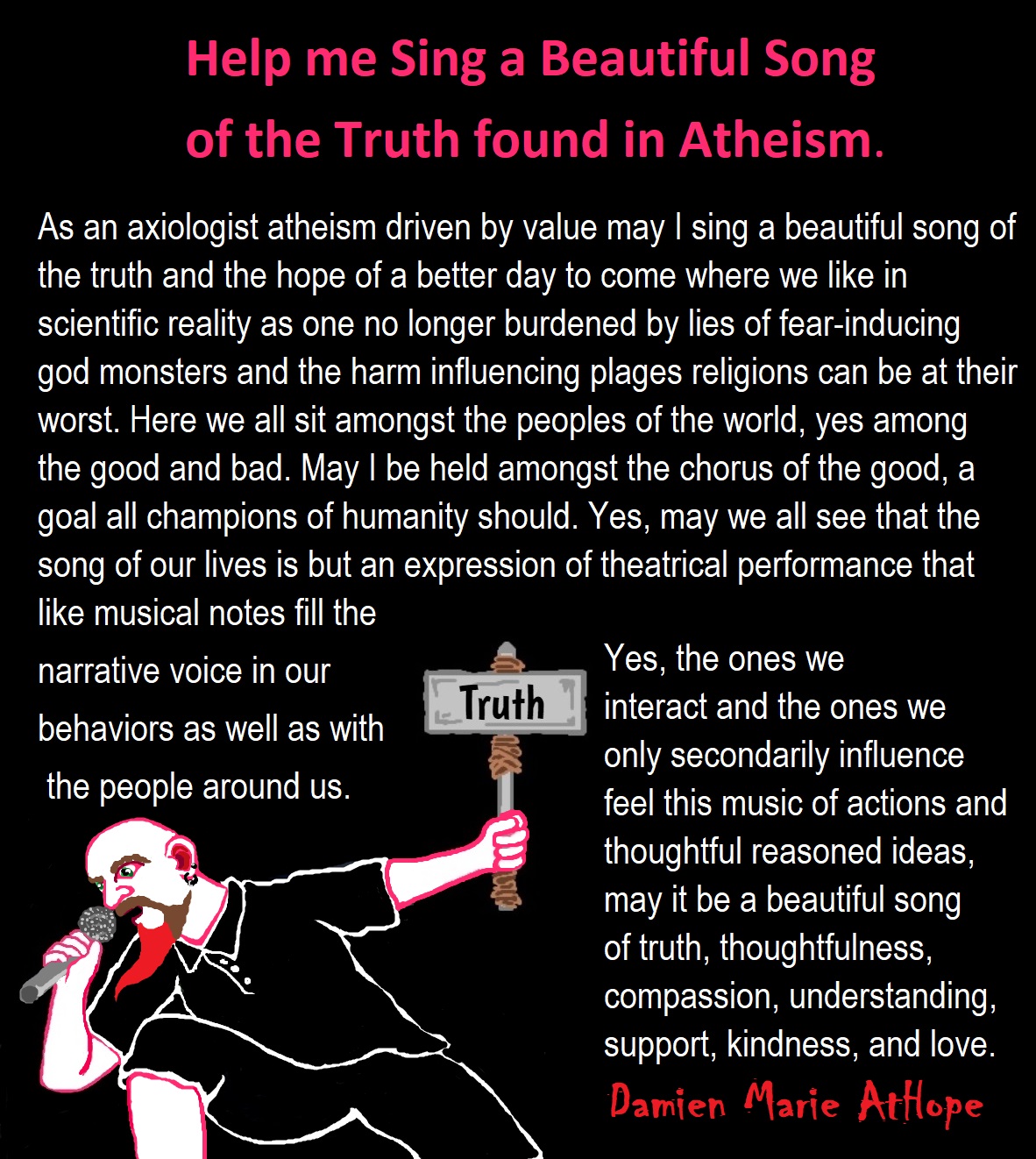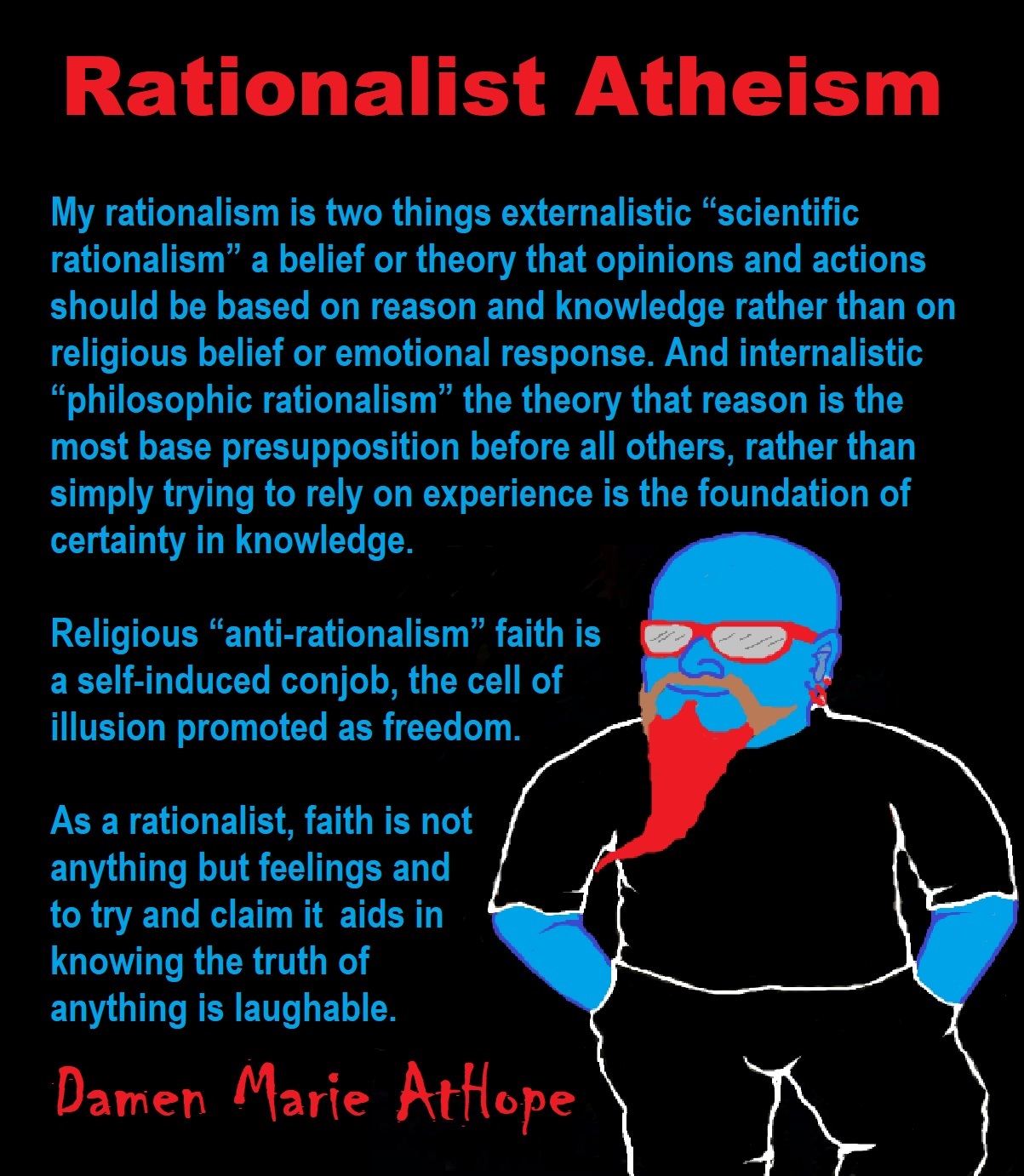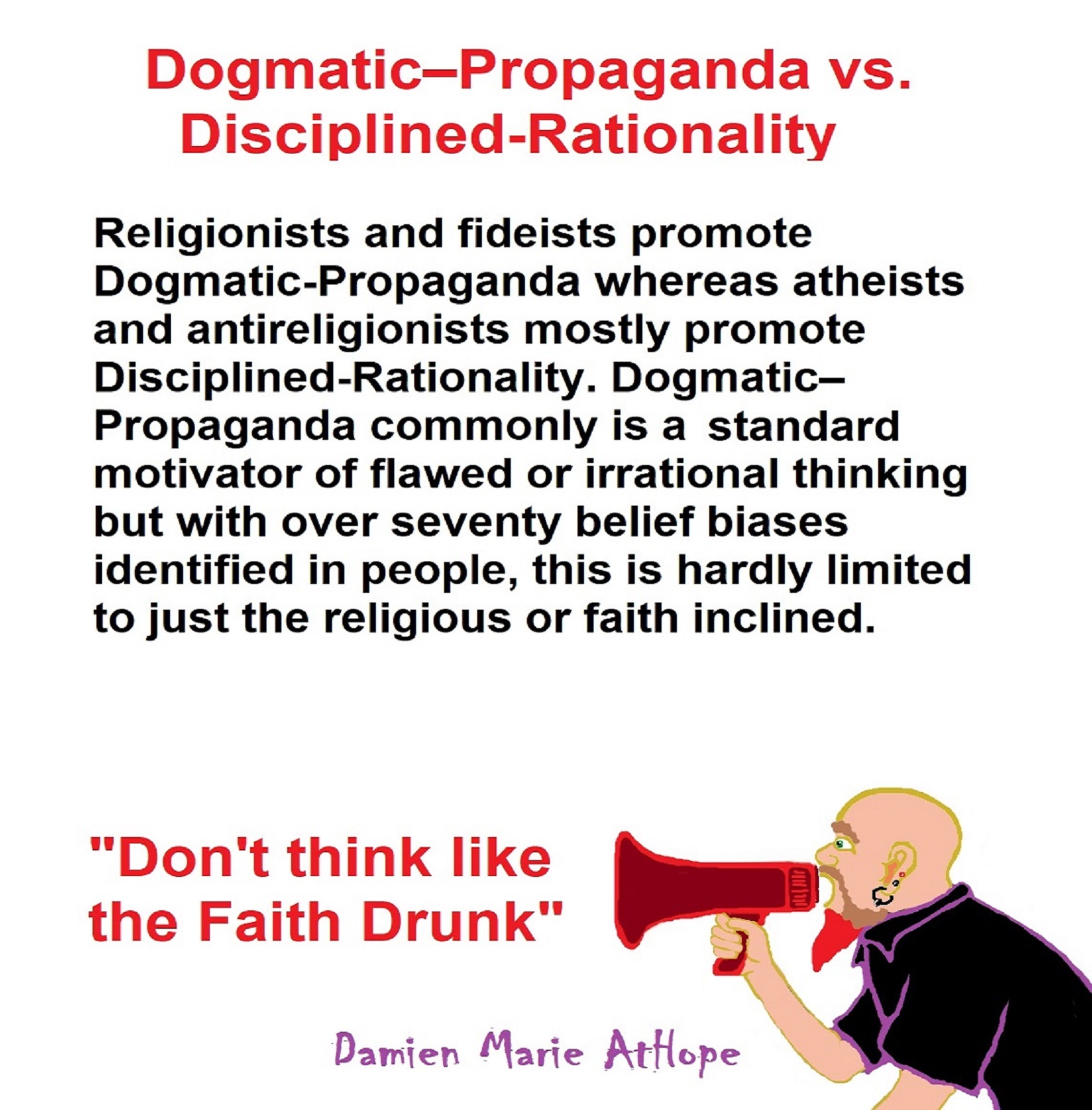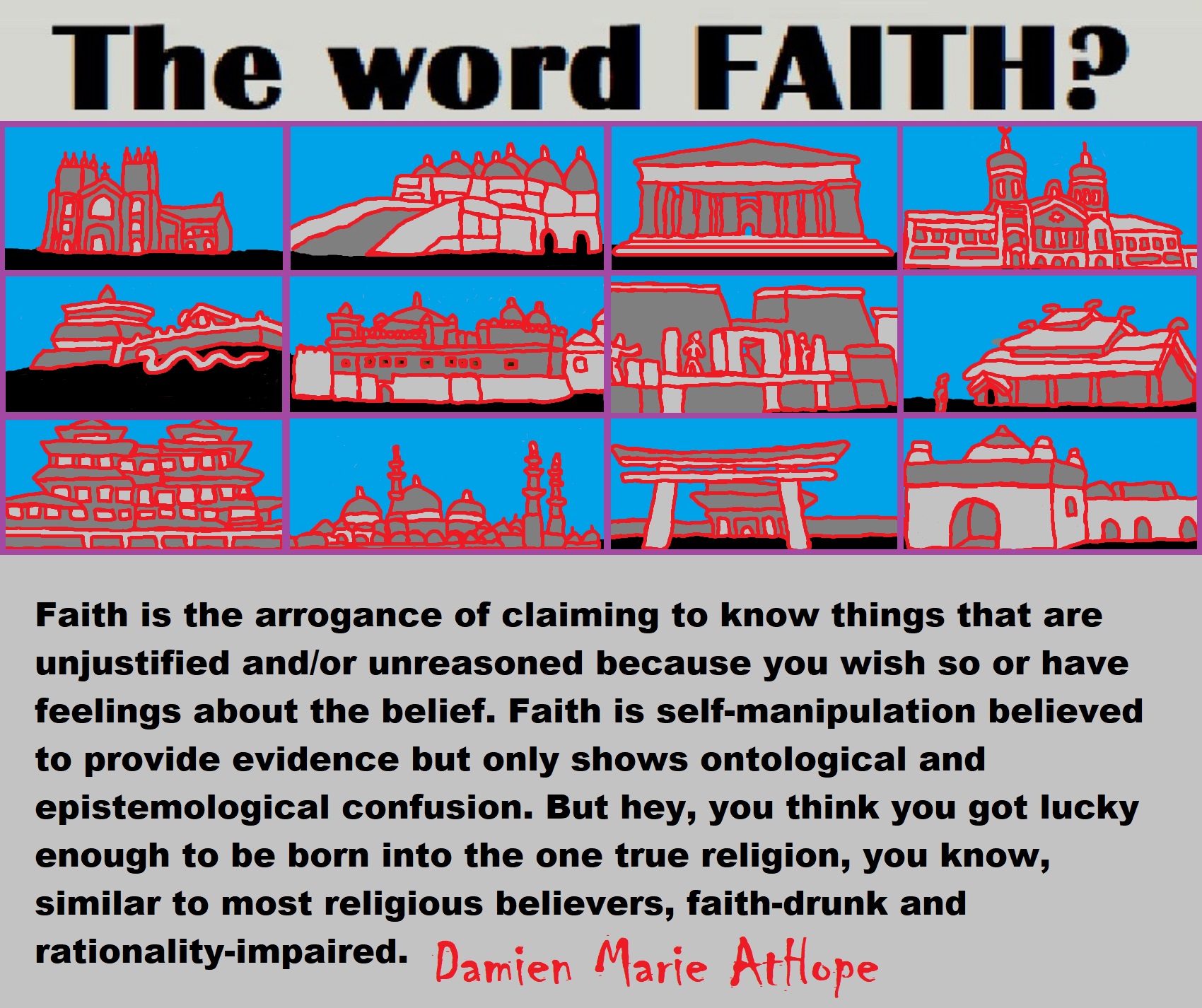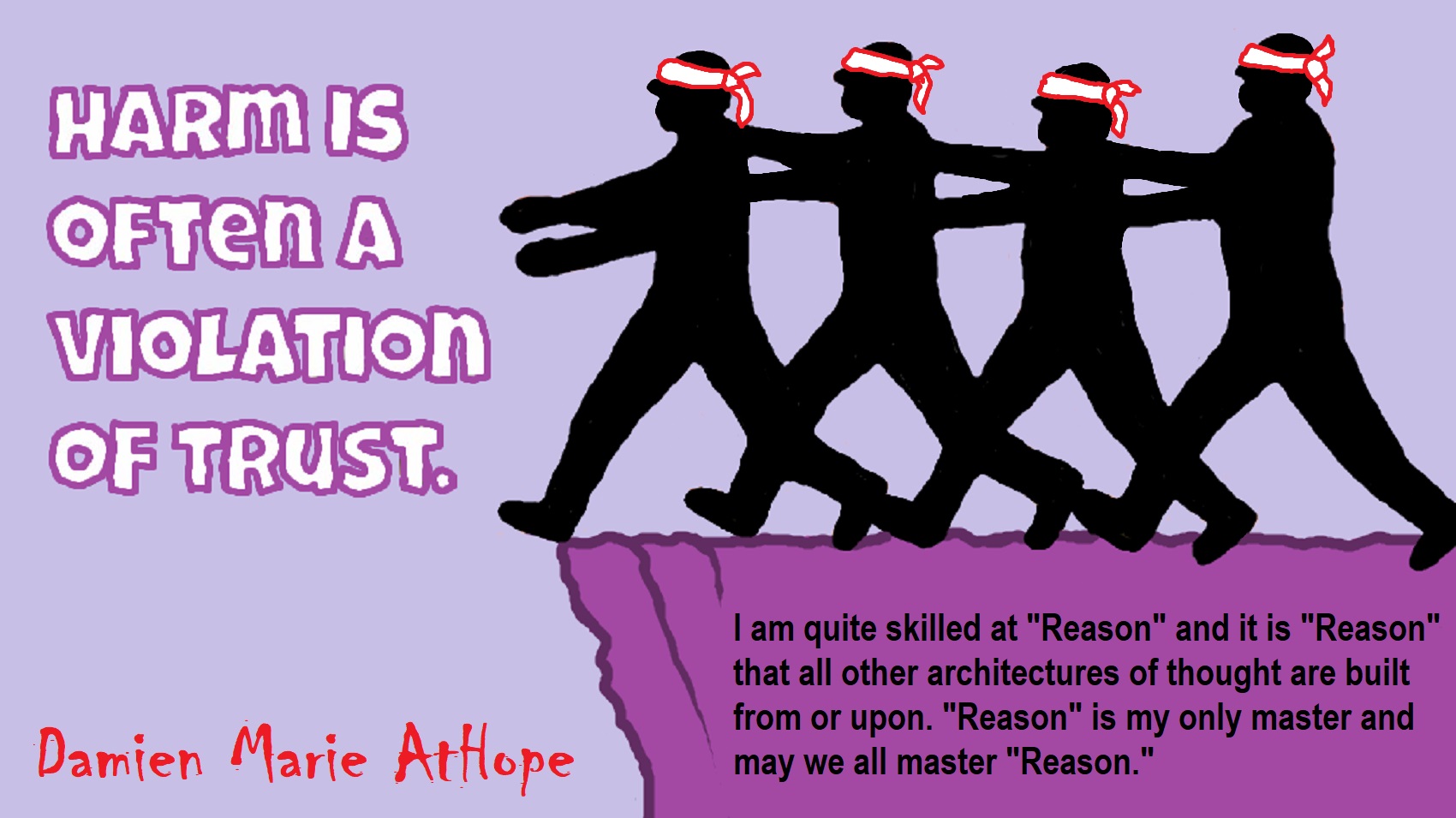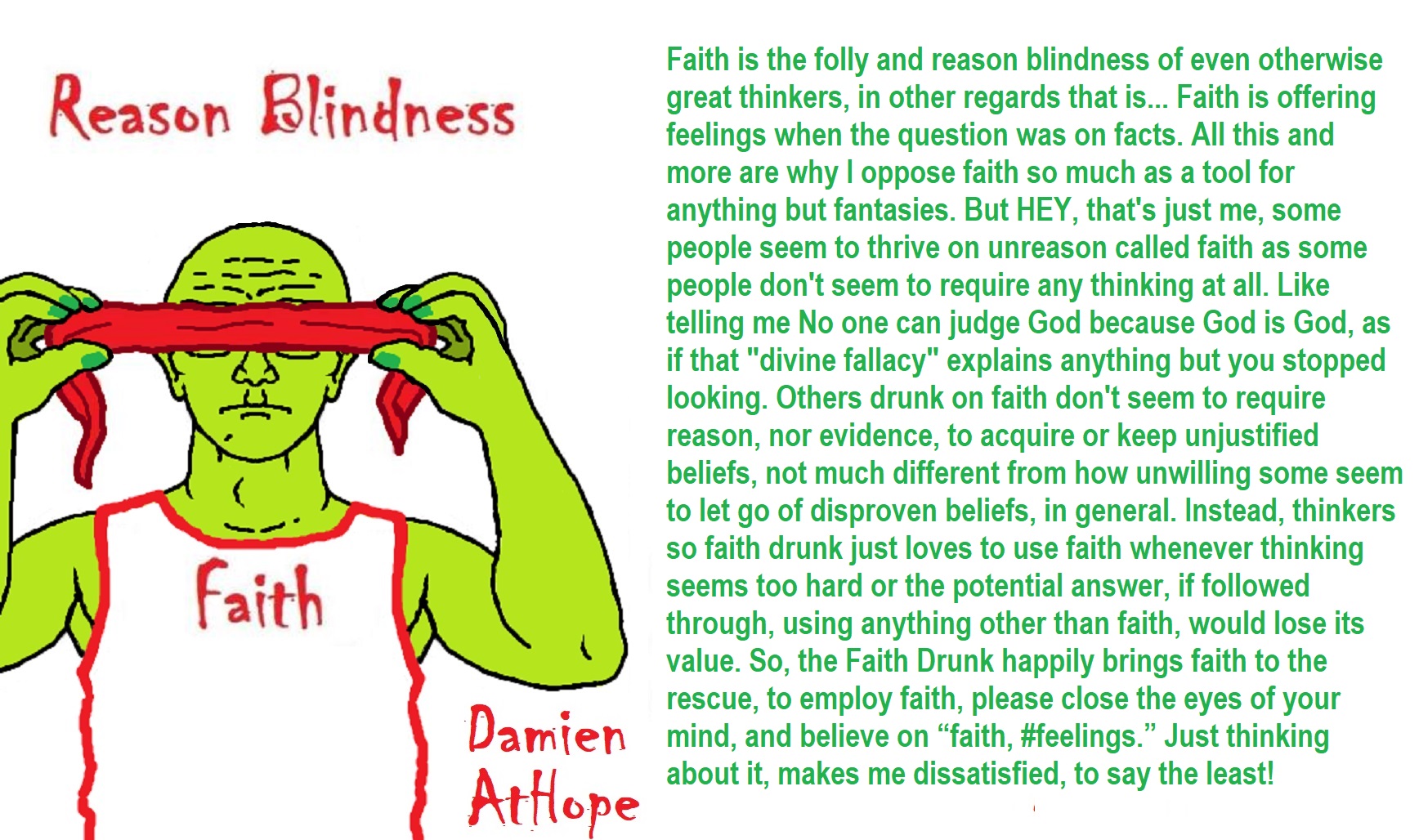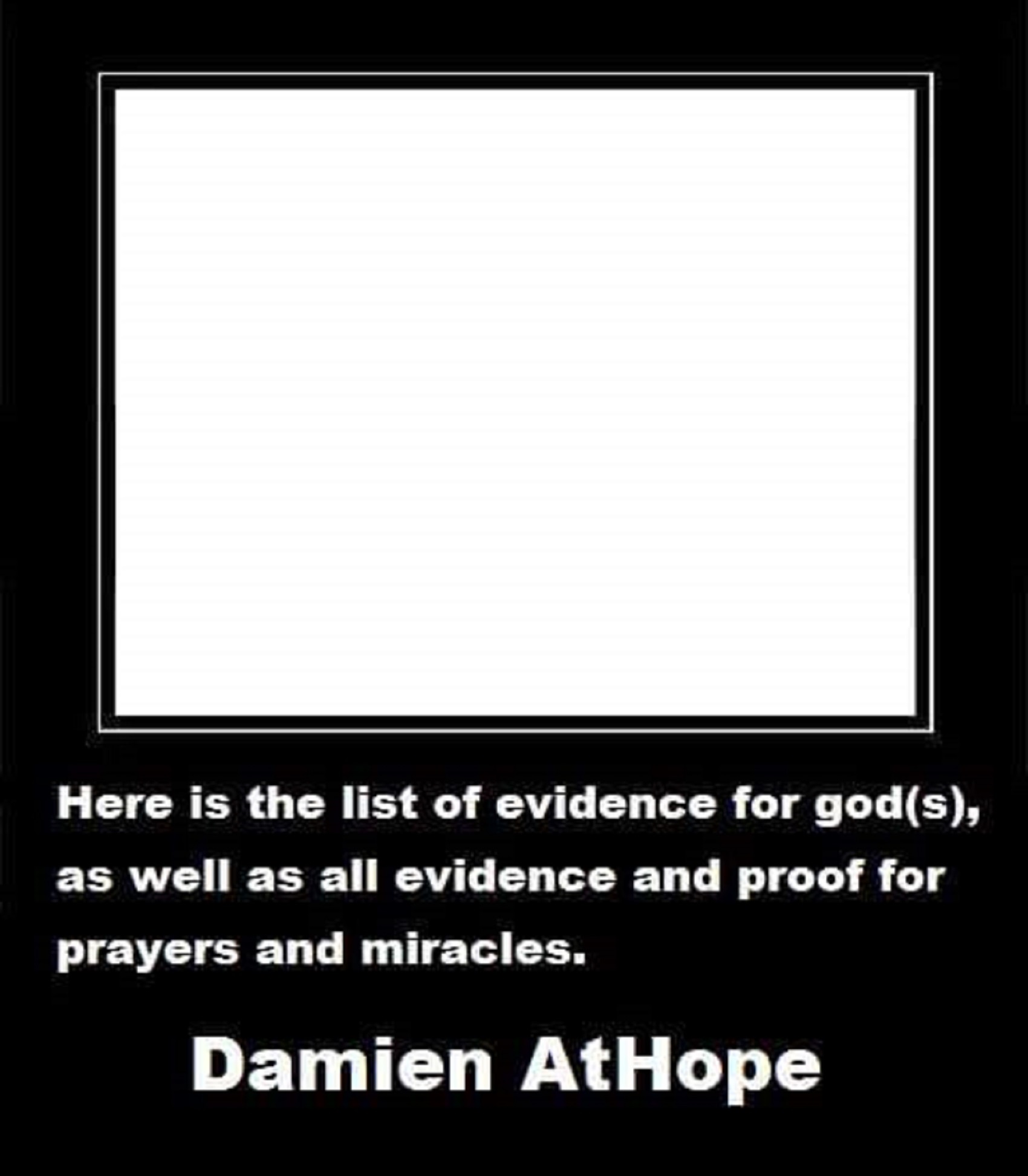
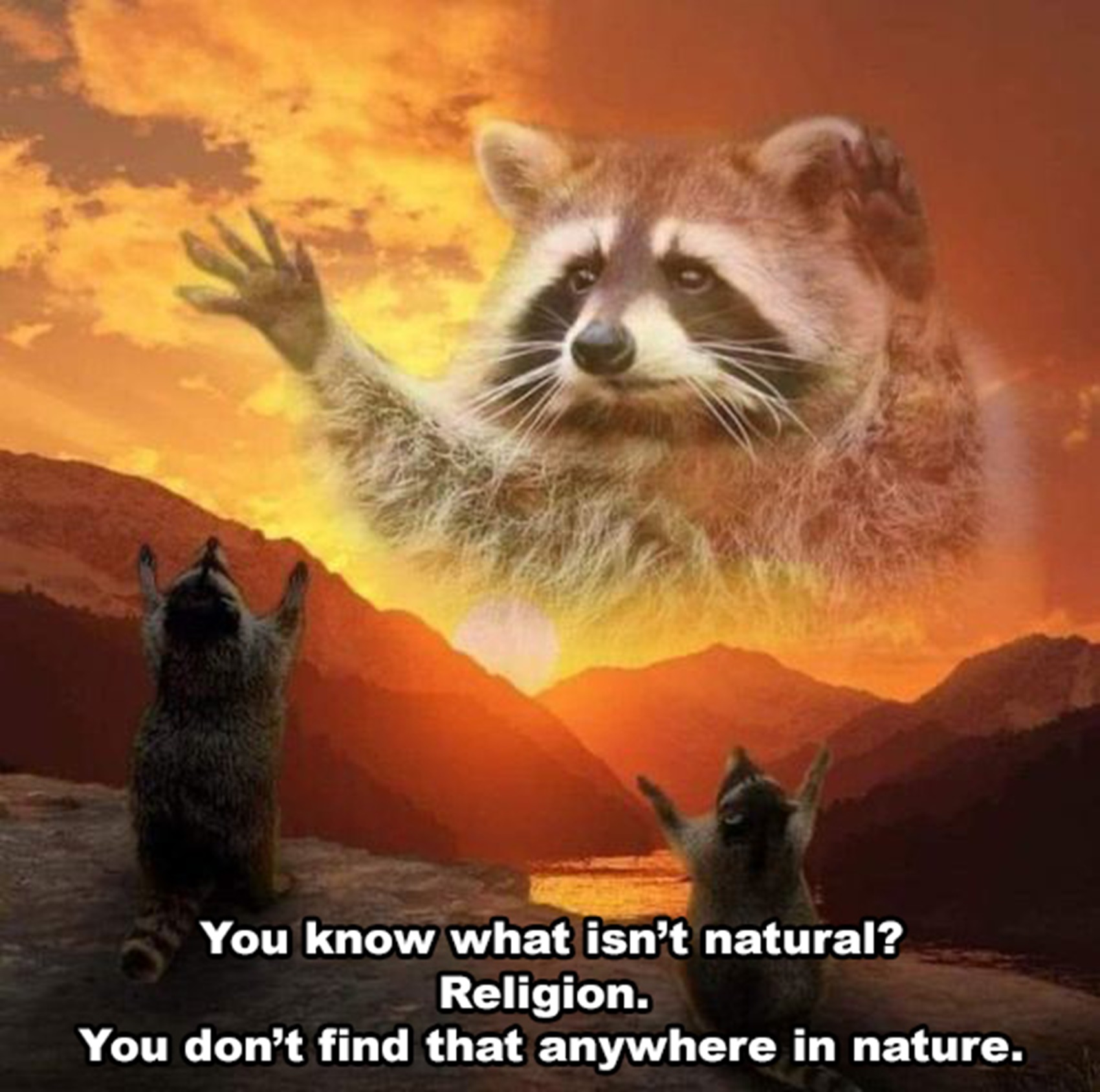

People don’t commonly teach religious history, even that of their own claimed religion. No, rather they teach a limited “pro their religion” history of their religion from a religious perspective favorable to the religion of choice.
We are like believing machines we vacuum up ideas, like Velcro sticks to almost everything. We accumulate beliefs that we allow to negatively influence our lives, often without realizing it. Our willingness must be to alter skewed beliefs that impend our balance or reason, which allows us to achieve new positive thinking and accurate outcomes.

To me, Animism starts in Southern Africa, then to West Europe, and becomes Totemism. Another split goes near the Russia and Siberia border becoming Shamanism, which heads into Central Europe meeting up with Totemism, which also had moved there, mixing the two which then heads to Lake Baikal in Siberia. From there this Shamanism-Totemism heads to Turkey where it becomes Paganism.

Do you truly think “Religious Belief” is only a matter of some personal choice?
Do you not see how coercive one’s world of choice is limited to the obvious hereditary belief, in most religious choices available to the child of religious parents or caregivers? Religion is more commonly like a family, culture, society, etc. available belief that limits the belief choices of the child and that is when “Religious Belief” is not only a matter of some personal choice and when it becomes hereditary faith, not because of the quality of its alleged facts or proposed truths but because everyone else important to the child believes similarly so they do as well simply mimicking authority beliefs handed to them. Because children are raised in religion rather than being presented all possible choices but rather one limited dogmatic brand of “Religious Belief” where children only have a choice of following the belief as instructed, and then personally claim the faith hereditary belief seen in the confirming to the belief they have held themselves all their lives. This is obvious in statements asked and answered by children claiming a faith they barely understand but they do understand that their family believes “this or that” faith, so they feel obligated to believe it too. While I do agree that “Religious Belief” should only be a matter of some personal choice, it rarely is… End Hereditary Religion!
The Trap of Intellectual Honesty and the Freedom from Moral Theism
- Addressing a Theistic Philosopher with Fallacious Thinking
- I am a caring firebrand axiological atheist, wishing to be hard on ideas but kind to people.
- Firebrand Atheist Dealing with Christian, Threat Prayers
- Caring Firebrand Axiological Atheist, Antitheist, and Antireligionist as a Valuized Ethical Duty.
- No God: No evidence, No intelligence, and No goodness = Valid Atheism Conclusion
- Ignostic Atheist: Do you Have a Coherent Definition of god?
- Good Belief-Etiquette = Disciplined-Rationality (addressing The Ethics of Belief)
- Addressing The Ethics of Belief and Logical Fallacies
- Caring firebrand atheism vs. Christian nationalism and dominionism
- Damien Marie AtHope Chats With Matt Dillahunty on Atheism and Philosophy
- My Strongest Explicit Atheism “positive” / “strong” / “hard” atheists similar to Antitheist Atheism.
For the Love of Firebrand Atheism?
Can atheists be ethical?
Christian Apologist, Ken Ham thinks that for atheists, there really is no basis for their ethics, therefore they believe they can do whatever they want if they can get away with it. What is “right” or “wrong” to such people is all relative.
thinks that for atheists, the answer is “Definitely Yes” atheists can be ethical. According to Matt, atheists are people who, are subject to the same laws of our country (and other countries), and they have a sense of right and wrong. They often work with people who are religious and have ethical standards, as well as non-believers who are don’t; so they are exposed to all sorts of moral behavior. In addition, they often form their own moral standards based on what suits them. Besides, things (like robbery, lying, stealing, etc.,) can get you imprisoned; so it is practical and logical for an atheist to be ethical and work within the norms of social behavior. However you want to look at it, atheists, generally, are honest, hardworking people. Nevertheless, some Christians raise the question, “What is to prevent an atheist from murdering and stealing? After all, they have no fear of God and no absolute moral code.” The answer is simple: Atheists are capable of governing their own moral behavior and getting along in society the same as anyone else. ref
Here is the “The Ethics of Belief”: http://www.uta.edu/philosophy/faculty/burgess-jackson/Clifford.pdf
Ps, someone asked why would a critical thinker follow another old book from 1877? Well the age of evidence or thinking is relevant if it is reasonable. Saying it’s age is old is not a refutation of its arguments.
Ethical atheism: heavily involved and utilizes ethical thought and standards to navigate atheism or the humanism that is likely to follow such an ethical awareness. Ethical atheism strives to utilize the strong force of ethics and ethical challenge to address the many issues that not only arise in combating the fanatical promotion of harmful myths but ethical ways to positively navigate all of life’s real struggles or options to behave in interactions with others. God claims all totally lack a standard of meeting any warrant or justification in their burden of proof, thus the claim as offered debunks itself as any kind of viable claim. Would you be intellectually honest enough to want to know if your belief was completely false, and once knowing it was an unjustified belief, realize it lacks warrant and the qualities needed for belief-retention, as well as grasp the rationality that certain beliefs are epistemically unfounded which compels belief-relinquishment due to the beliefs insufficient supporting reason and evidence, realizing that belief. To me, belief in gods is intellectually flawed and dishonest compared to the evidence of the natural world is not only explainable on every level as only natural, but also there is not a shred of anything supernatural and every claim tested ever has time and again debunked such nonsense. If anything supernatural or paranormal was provable, the believers would have taken James Randi’s famous million-dollar challenge, or they would have gone and got their Nobel Prize in proving the supernatural or open up a 100% faith-based prayer and miracles hospital. Where the cure for anything and everything is guaranteed because “prayer and miracles works” and the only education was being a religious or spiritual leader. Prove it or it is not really worthy for true belief and if there was actual scientific proof it would silence us rationalists, atheists, and skeptics forever. However, nothing of the sort has ever happened. List of prizes for evidence of the paranormal or supernatural woo-woo goes back to at least 1922 with Scientific American. But it did not stop there instead there has been many individuals and groups have offered similar monetary awards for proof of the paranormal or supernatural with some reaching over a million dollars yet as of February 2016, not one prizes have been claimed. Ref Therefore, belief in supernatural or paranormal are not realistic nor are they reasonable. And what’s even crazier is it’s nonsense and they act like it is us rationalists, atheists, and skeptics that have to disprove something they have never proved.
Despite the width and diversity of their philosophical views, secular ethicists generally share one or more principles:
- Human beings, through their ability to empathize, are capable of determining ethical grounds.
- The well-being of others is central to ethical decision-making
- Human beings, through logic and reason, are capable of deriving normative principles of behavior.
- This may lead to a behavior preferable to that propagated or condoned based on religious texts. Alternatively, this may lead to the advocacy of a system of moral principles that a broad group of people, both religious and non-religious, can agree upon.
- Human beings have the moral responsibility to ensure that societies and individuals act based on these ethical principles.
- Societies should, if at all possible, advance from a less ethical and just form to a more ethical and just form.
Many of these tenets are applied in the science of morality, the use of the scientific method to answer moral questions. Various thinkers have framed morality as questions of empirical truth to be explored in a scientific context. The science is related to ethical naturalism, a type of ethical realism.
In How Good People Make Tough Choices: Resolving the Dilemmas of Ethical Living, Rushworth Kidder identifies four general characteristics of an ethical code:
-
- 1. It is brief
- 2. It is usually not explanatory
- 3. Can be expressed in a number of forms (e.g. positive or negative, single words or a list of sentences)
- 4. Centers on moral values[1]
Atheistic Humanist ethics?
Well, Humanists generally (whether they realize it or not tend to) endorse universal morality based on the commonality of human nature, and that knowledge of right and wrong is based on our best understanding of our individual and joint interests, rather than stemming from a transcendental or arbitrarily local source, therefore rejecting faith completely as a basis for action. The humanist ethics goal is a search for viable individual, social and political principles of conduct, judging them on their ability to enhance human well-being and individual responsibility, ultimately eliminating human suffering. Ref
The International Humanist and Ethical Union (IHEU) is the worldwide umbrella organization for those adhering to the Humanist life stance.
- Humanism is a democratic and ethical life stance, which affirms that human beings have the right and responsibility to give meaning and shape to their own lives. It stands for the building of a more humane society through an ethic based on human and other natural values in the spirit of reason and free inquiry through human capabilities. It is not theistic, and it does not accept supernatural views of reality.[2]
I believe critical thinkers and thinkers who are intellectually honest should follow something close to “The Ethics of Belief” or they are likely not honest thinkers.
“The Ethics of Belief” was published in 1877 by philosopher William Kingdon Clifford outlined the famous principle “It is wrong always, everywhere, and for anyone to believe anything on insufficient evidence.” Arguing that it was immoral to believe things for which one lacks evidence, in direct opposition to religious thinkers for whom “blind faith” (i.e. belief in things in spite of the lack of evidence for them) was seen as a virtue. Ref Ref
To me, it comes down to the question, would you be intellectually honest enough to want to know if your belief was completely false? And once knowing it was an unjustified belief, realize it lacks warrant and the qualities needed for belief-retention, as well as grasp the rationality that compels belief-relinquishment due to the beliefs insufficient supporting reason and evidence. The act of believing, just because one wants to believe when everything contradicts the belief is intellectually unethical or deluded. Beliefs are directly connected to behavior, a behavior is directly involved in ethics, and ethics requires involvement in social thinking which requires us to mature or discipline our beliefs. A common flawed belief of theists is “You can’t have morals without god” or “You can’t have morality without religion.” It would seem to be a belief of theists to conclude that for one to care about morality it can only be because a god exists, believing that a god/religion is and knows all good, and atheists or nonreligious cannot know good. You cannot appeal to our morality and then say we do not have morality. Likewise, you cannot appeal to your moral superiority and then demonstrate errors in following intellectual honesty thus a sound morality. Most theists like to act as if only they have morality and then presuppose atheist intellectual honesty or try to inspire atheist intellectual honesty thus believing atheists either have or can easily know good/morality. This is clearly evident in how theists/religionists question atheists about naturalism, the limits of scientific knowledge or epistemology knowledge. In general, believing they can conquer us atheists by getting us to agree we can’t be 100% sure of all things. However, in doing so they know they can appeal to our atheist intellectual honesty thus godless knowledge of good, but by doing so they have conceded to atheist morality even without realizing it. In addition, atheists often wrongly assume and presuppose theists will use intellectual honesty, such as that the believer is intellectually honest, when relatively all theists must, in fact, be somewhat intellectually dishonest and use faith as knowledge, justification, and certainty. This is a two-pronged part of the faith fallacy which requires atheists to be the most intellectually honest. Theists try to force an appeal to philosophic skepticism that even naturalism must be in question and then utilize special pleading fallacy that theism does not have to appeal to philosophic skepticism, if naturalism must be questioned because theists can place supernaturalism in its place due to faith or some other nonsense, which is intellectual dishonesty. As if what you see and can prove (naturalism) requires doubt, how much more doubt should be leveled at that which is not see and has no proof or evidence at all (supernaturalism). Naturalism roughly involves what you see and can prove it or by empirical observation and test such through the scientific method. Naturalism’s view is mainly that natural explanations best explain or are the most valid and reliable to identify, understand, and explain all phenomena in reality without any need to resort to supernatural conclusions or purpose. Theists/religionists question atheists about naturalism, saying naturalism cannot give an adequate account of the origin of life arising from nonlife. Thus god, for some unprovable reason or argument from ignorance fallacy, god of the gaps!? Intellectual honesty would inspire the integrity of truth to be everything, no matter if the truth devotes from one’s belief. Thus, a true champion of intellectual honesty will not allow the truth to be subject to beliefs rather the motivation would be to have beliefs that are subject to the truth. Furthermore, intellectual honesty must follow and purposefully utilize relevant facts and information, not willfully hide or disregard things that may contradict or disprove one’s beliefs. In addition, relevant facts and information are not misused or misrepresented, to give misleading or false impressions. Without intellectual honesty, the scholars of religion would seem to be moral relativists or moral avoiders and what I must conclude are fallacy-fueled bullies placing their loved myths above Intellectual integrity. Yes, time and again the many scholars or champions of religion claim moral superiority and demonstrate nothing of the kind, instead, like the conmen before them, pushing supernatural Dogmatic-Propaganda over natural reality and preying on the ignorance of others with their intellectual dishonesty. Sadly, this seems to just be the only championed course of gods or religion because of the faith fallacy. They must invariably rely on ignorance and /or dishonesty as a means by which to exemplify their smokescreen of misdirection, lies, and wishful thinking. What needs to be understood is that the scholars or champions of religion who willfully commit fallacies such as the ones used in favor of the faith fallacy, like the special pleading fallacy or the argument from ignorance fallacy, which are forms of intellectual dishonesty. Therefore, it all comes down to intellectual honesty and the ability to hold the same standers to one’s self as you wish others to agree to. I would explore all to have and strive to exhibit intellectual honesty, thus I dare the scholars or the champions religion to also, be honest in the ethics of belief and let go of their intellectual dishonesty. Of course, I would rightly challenge us all to stand in the reason and evidence proven in this world, not arbitrarily adding without reason unproven claims devoid of evidence for some unproven otherworld. Can the scholars of religion move us with actual valid and reliable reason and evidence is not the question, as we already start and end with such reasoning and only wait for them to put up or shut up. So instead, the question is, will the scholars of religion show intellectual honesty do the same, start and end with actual reason and evidence that is valid and reliable in the real world, not resort back to the fallacy of faith, which is not proof of anything. Moreover, it could be said that for ethical atheism applied logically “to me” in general ethics must be equally applied or the concept of ethics has no ethical meaning to begin with. Ethical atheism could be seen as thinking that if the idea of god implies the abdication of human reason and justice; it is the most decisive negation against of human rights, dignity, and liberty. Therefore ethical atheism holds a necessary requirement to disbelief in order to end such unethical thinking and to end a god only morality enslavement of mankind. Ethical atheism holds all to ethical standards therefor if god did exist, it would be necessary to abolish him so we could be freely utilize human rights, dignity, reason, and justice. Ethical atheism promotes atheism because it is both the logical and the ethical position to take in a world where religious people fly planes into skyscrapers, blow themselves up on crowded buses, and do all sorts of horrible things in the name of an imaginary sky monster. As an atheist ethicist, I am not just an Atheist (disbelieving claims of gods), an Antitheist (seeing theism as harmful) and an Antireligionist (seeing religion as untrue and/or harmful). Also as an atheist ethicist, I value and require reason and evidence to support beliefs or propositions as well as I am against all pseudohistory, pseudoscience, and pseudomorality. Why are gods even concerned with belief, as if they truly wanted it so bad they would be real and being more than just mental projections of which they are now they would show themselves and we all would believe. Therefore we can rightly conclude with no evidence of them at all, that belief in god(s) is the thing people do when playing at reality is valued more than understanding the actual natural only nature of reality. 1, 2, 3
Using a universal declaration of ethical principles to build a better world?
“Universal ethics: there are several ethical standards that are considered to be self-evident, and seem to apply to all people throughout all of history, regardless of cultural, political, social, or economic context. The non-aggression principle, which prohibits aggression, or the initiation of force or violence against another person, is a universal ethical principle. Examples of aggression include murder, rape, kidnapping, assault, robbery, theft, and vandalism. On the other hand, the commission of any of such acts in response to aggression does not necessarily violate universal ethics. There are obvious reasons why universal ethics are beneficial to society. For example, if people were allowed to kill or steal, this would lead to widespread chaos and violence and would be detrimental to the well-being of society. Most people agree that it’s better to prohibit aggression than to allow everyone to commit it. Therefore, aggression is intrinsically immoral. Although nearly all societies have laws prohibiting aggression, this does not mean that universal ethics are necessarily reflected by that society’s government or its dominant ideology. In ethics, a ‘universal code of ethics’ is a system of ethics that can apply to every sentient being.” 1
But What Good is a Set of Principles?
There are many tools for decision making, but few (secular) guides to indicate when situations might have an ethical implication. Yet this awareness is a crucial first step before decisions are made. Recognizing the moral context of a situation must precede any attempt to resolve it. Otherwise, what’s to resolve? Ethical dilemmas rarely present themselves as such. They usually pass us by before we know it or develop so gradually that we can only recognize them in hindsight – a little like noticing the snake after you’ve been bitten. But what are the signs that a snake might be present? An ethical framework is like a ‘snake detector’. I offer the following principles as landmarks – generic indicators to be used as compelling guides for an active conscience. They are NOT absolute rules or values. They are more like a rough measurement where an exact one is not possible. They often conflict with each other in practice, and some will trump others under certain circumstances. But as principles that need to be considered, they appear constant. These principles are compatible with the argument that we should simply follow our intuition and rely on the ‘inner voice’. However, that voice is not always audible, and today’s society presents a wide range of complex circumstances that require more guidance than simply ‘concern for others’ or ‘does it feel right?’ And so these principles are offered effectively as a more detailed reference. In a sense, the principles are outcomes of the mother of all principles – unconditional love and compassion – which appears in virtually all faiths, and is expressed here as ‘concern for the well-being of others’. (This principle is at the heart of the stakeholder model of ethics, i.e. what is my impact on others?) At first glance, they will appear obvious and perhaps trite or simplistic. Keep in mind that they are meant to be practical rather than groundbreaking and that many people have found them useful in the absence of other guides. The principles have been organized into three categories for ease of use: personal, professional and global ethics.(Colero, n.d.).
Here are some of my related blogs:
- Believe in Good, Humanist Morality?
- God Originated Mortality?
- Bible Morality and a Genocidal god of Watery Death?
- Natural Morality?
- Why care? Because we are Dignity Beings.
- Ethical Thinking or Moral Reasoning Should be Rational AND Emotional
- How We Think is as Important as How We Behave.
- Behavior Modification Methods: Positive vs. Negative
- Axiology, Naturalism, Realism and Moral Theory Ideas
- Axiological Atheism Explained
- Explaining Axiological theism, Axiological agnosticism, and Axiological atheism
- The Ontology of Humanistic Economics in Society?
Disproof by logical contradiction
‘A Logical Impossibility’
No God: No evidence, No intelligence, and No goodness = Valid Atheism Conclusion
- No evidence, to move past the Atheistic Null Hypothesis: There is no God/Gods (in inferential statistics, a Null Hypothesis generally assumed to be true until evidence indicates otherwise. Thus, a Null Hypothesis is a statistical hypothesis that there is no significant difference reached between the claim and the non-claim, as it is relatively provable/demonstratable in reality some way. “The god question” Null Hypothesis is set at as always at the negative standard: Thus, holding that there is no God/Gods, and as god faith is an assumption of the non-evidentiary wishful thinking non-reality of “mystery thing” found in all god talk, until it is demonstratable otherwise to change. Alternative hypothesis: There is a God (offered with no proof: what is a god and how can anyone say they know), therefore, results: Insufficient evidence to overturn the null hypothesis of no God/Gods.
- No intelligence, taking into account the reality of the world we do know with 99 Percent Of The Earth’s Species Are Extinct an intelligent design is ridiculous. Five Mass Extinctions Wiped out 99 Percent of Species that have ever existed on earth. Therefore like a child’s report card having an f they need to retake the class thus, profoundly unintelligent design.
- No goodness, assessed through ethically challenging the good god assumptions as seen in the reality of pain and other harm of which there are many to demonstrates either a god is not sufficiently good, not real or as I would assert, god if responsible for this world, would make it a moral monster ripe for the problem of evil and suffering (Argument from Evil). God would be responsible for all pain as life could easily be less painful and yet there is mass suffering. In fact, to me, every child born with diseases from birth scream out against a caring or loving god with the power to do otherwise. It could be different as there is Congenital insensitivity to pain (CIP), also known as congenital analgesia, in which a person cannot feel (and has never felt) physical pain.[1]
Axiological “Presumptive-Value”
Axiological “presumptive-value” success: Sound Thinker: uses disciplined rationality (sound axiological judgment the evaluation of evidence to make a decision) supporting a valid and reliable justification.
Axiological “presumptive-value” failure: Shallow Thinker: undisciplined, situational, sporadic, or limited thinking lacking a valid and reliable justification.
“Presumptions are things that are credited as being true until evidence of their falsity is presented. Presumptions have many forms and value (Axiology) is just one. In ethics, value denotes the degree of importance of something or action, with the aim of determining what actions are best to do or what way is best to live (normative ethics), or to describe the significance of different actions. It may be described as treating actions as abstract objects, putting VALUE to them. It deals with right conduct and living a good life, in the sense that a highly, or at least relatively high valuable action may be regarded as ethically “good” (adjective sense), and that an action of low value, or relatively low in value, may be regarded as “bad”. What makes an action valuable may, in turn, depend on the ethic values of the objects it increases, decreases or alters. An object with “ethic value” may be termed an “ethic or philosophic good” (noun sense). Values can be defined as broad preferences concerning appropriate courses of actions or outcomes. As such, values reflect a person’s sense of right and wrong or what “ought” to be. “Equal rights for all”, “Excellence deserves admiration”, and “People should be treated with respect and dignity” are representatives of values. Values tend to influence attitudes and behavior and these types include ethical/moral values, doctrinal/ideological(religious, political) values, social values, and aesthetic values. It is debated whether some values that are not clearly physiologically determined, such as altruism, are intrinsic, and whether some, such as acquisitiveness, should be classified as vices or virtues.” ref, ref
“Sound thinking to me, in a general way, is thinking, reasoning, or belief that tends to make foresight a desire to be as accurate as one can with valid and reliable reason and evidence.”
Sound axiological judgment, to me, a “presumptive-value” success, is value judged opinions expressed as facts with a valid and reliable justification. In an informal and psychological sense, it is used in reference to the quality of cognitive faculties and adjudicational (relating to adjudication) capabilities of particular individuals, typically called wisdom or discernment. In a legal sense, – used in the context of a legal trial, to refer to a final finding, statement, or ruling, based on a considered weighing of evidence, called, “adjudication“.
Sound Thinkers don’t value FAITH
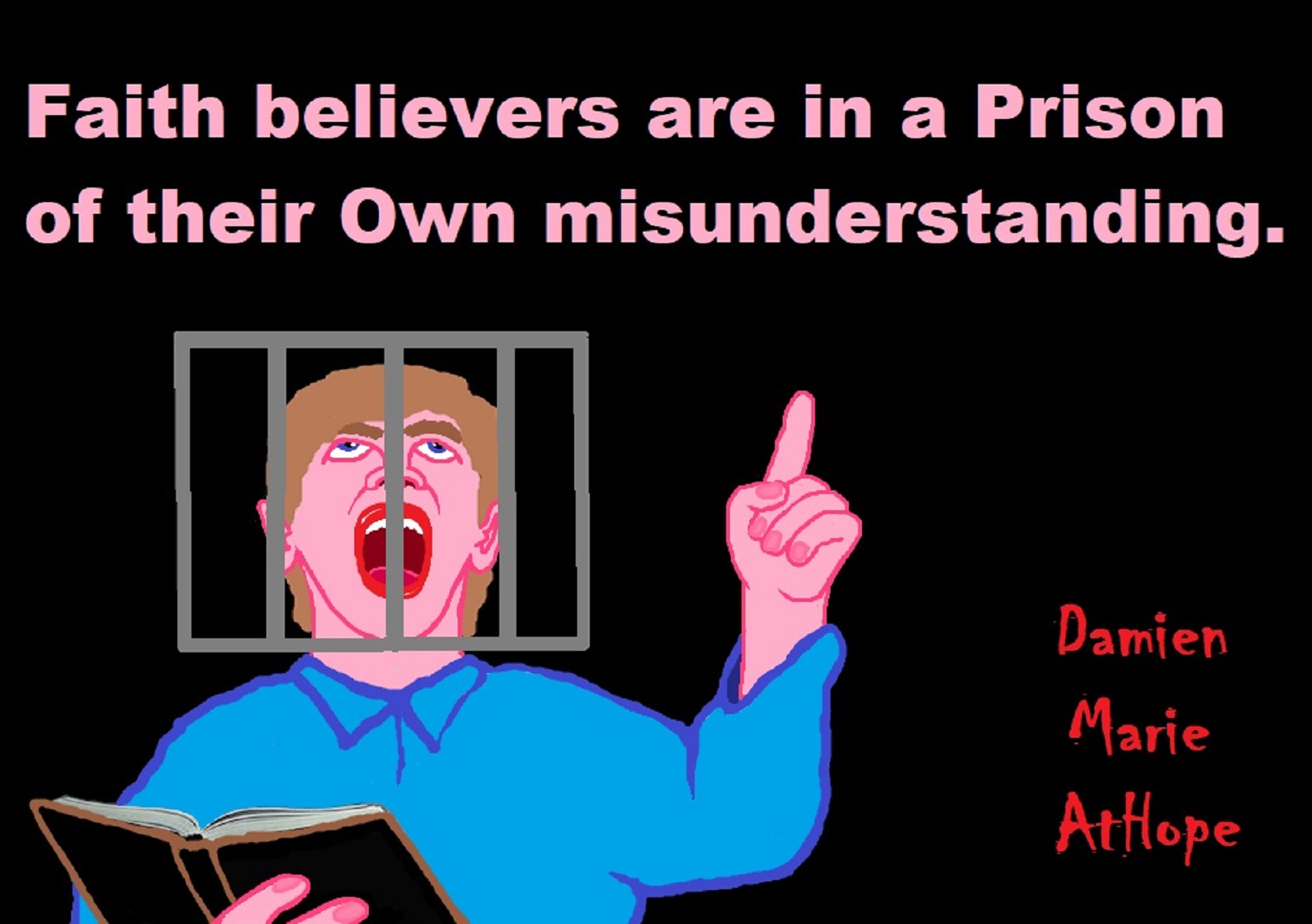
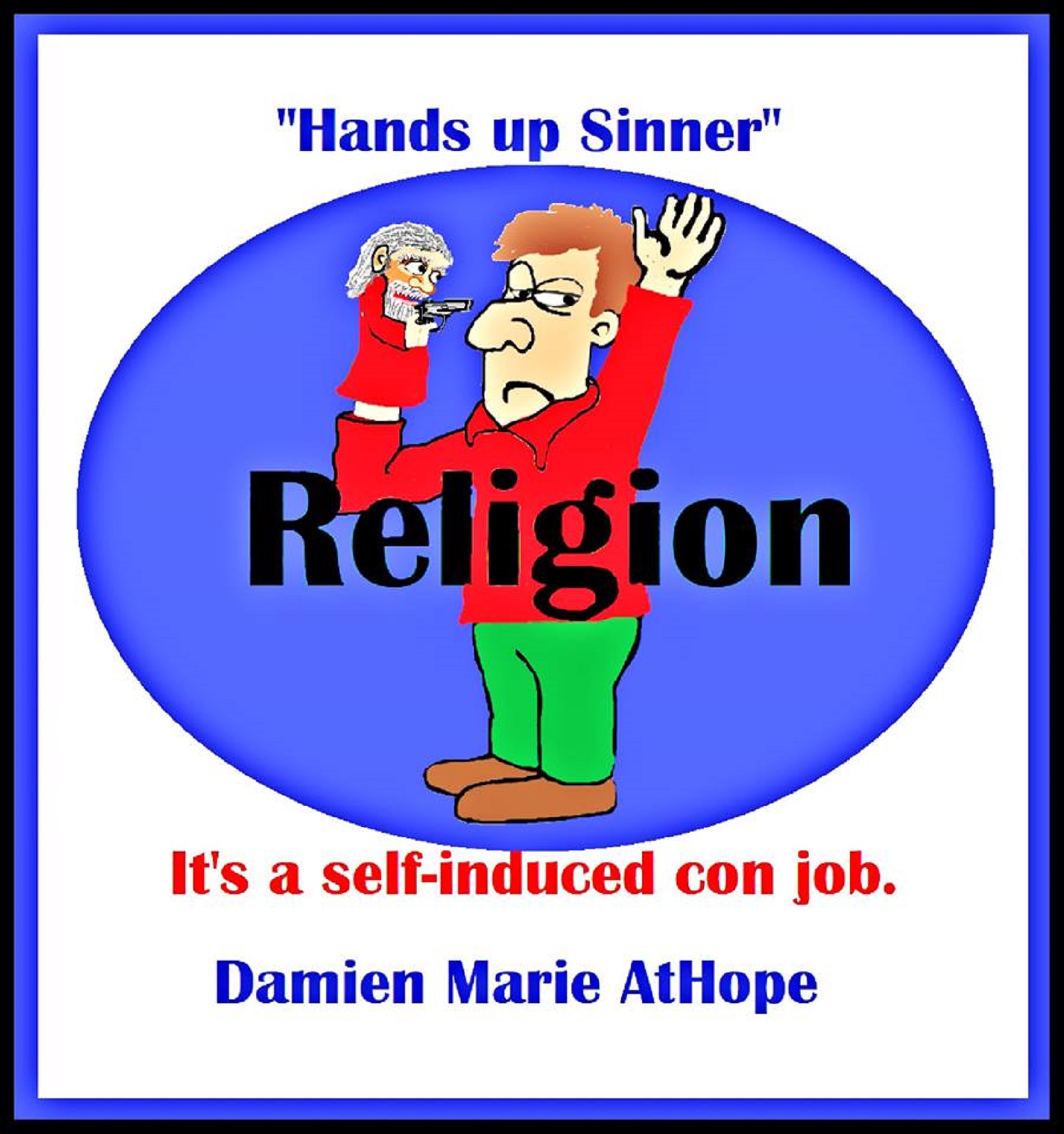
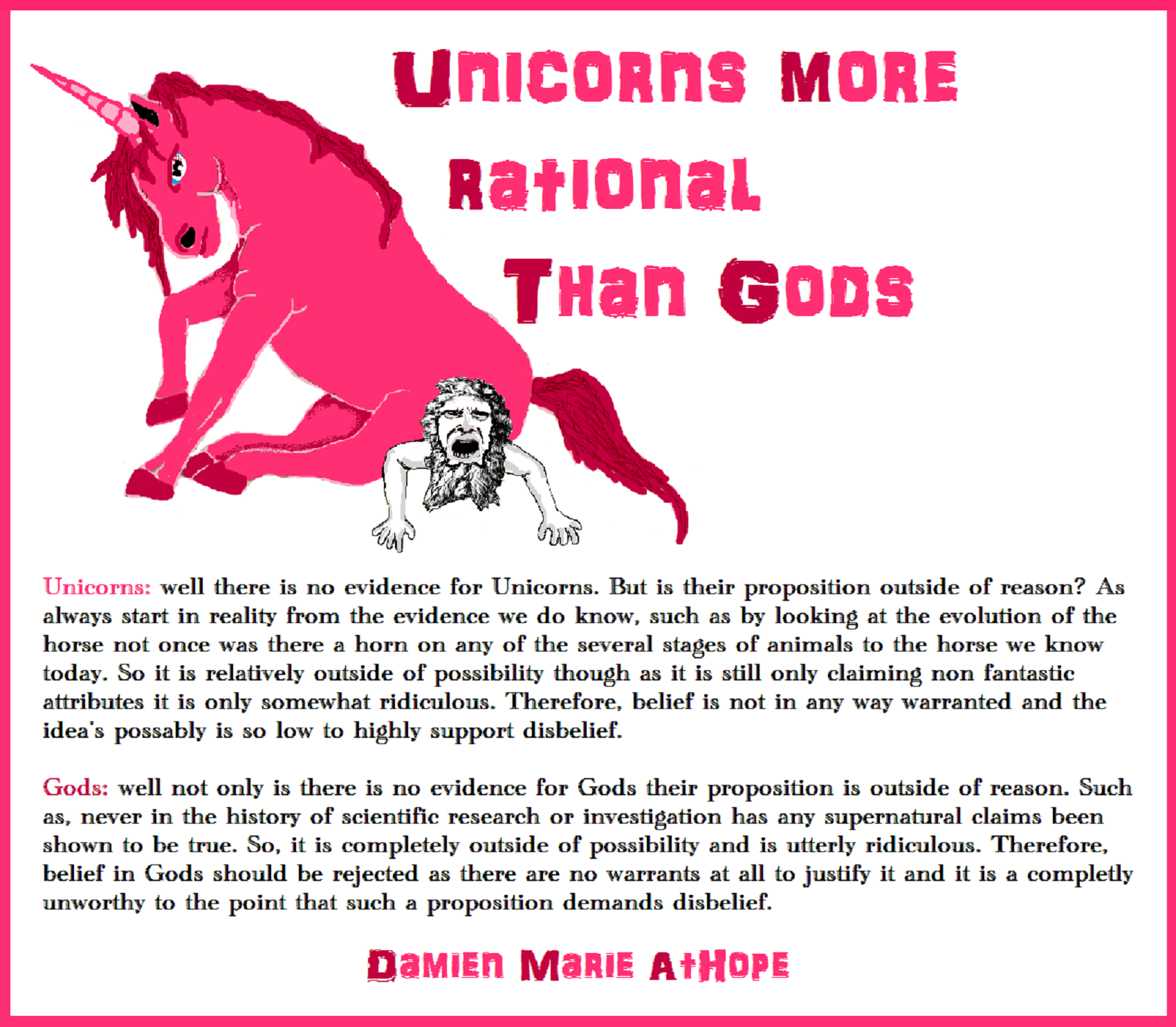
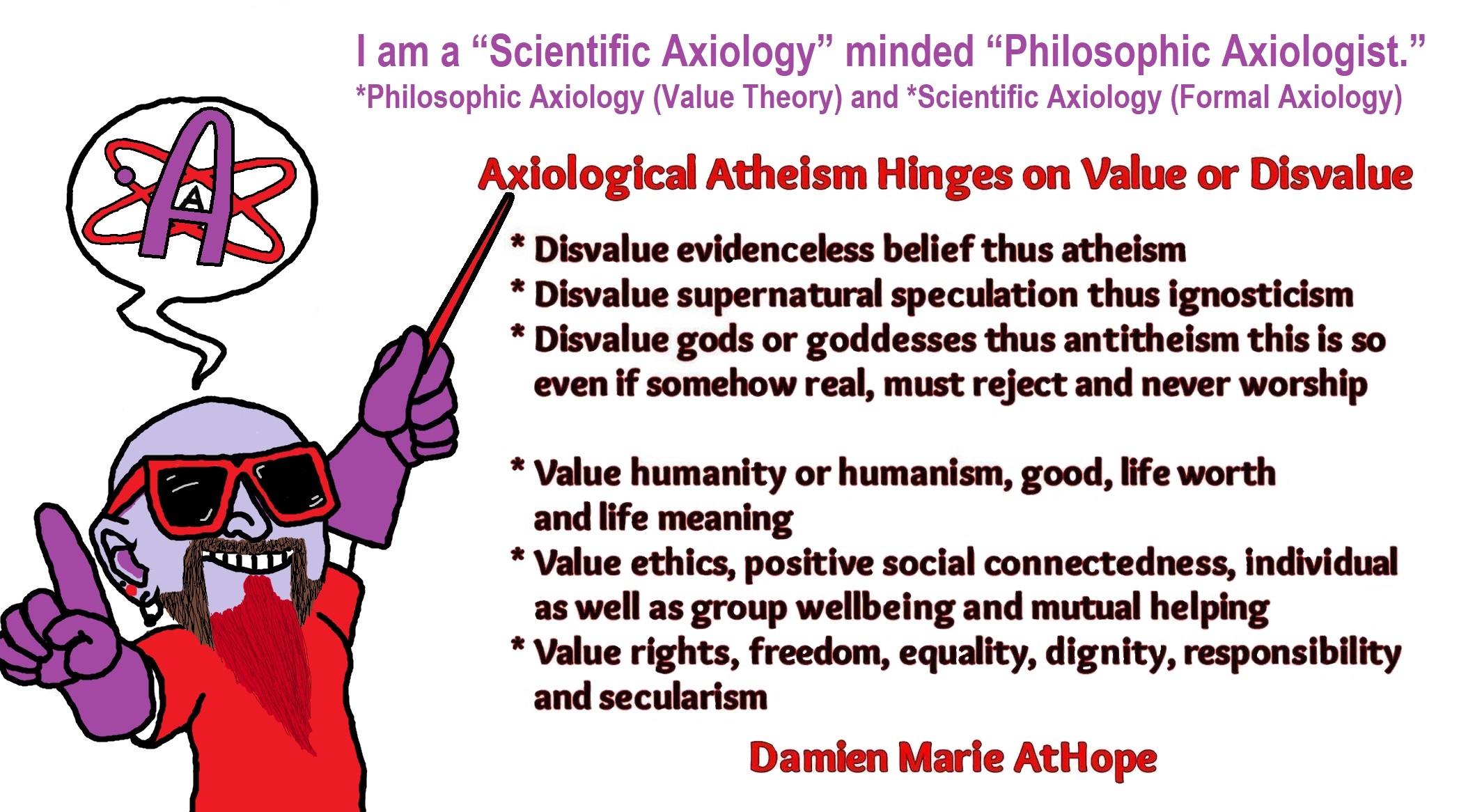

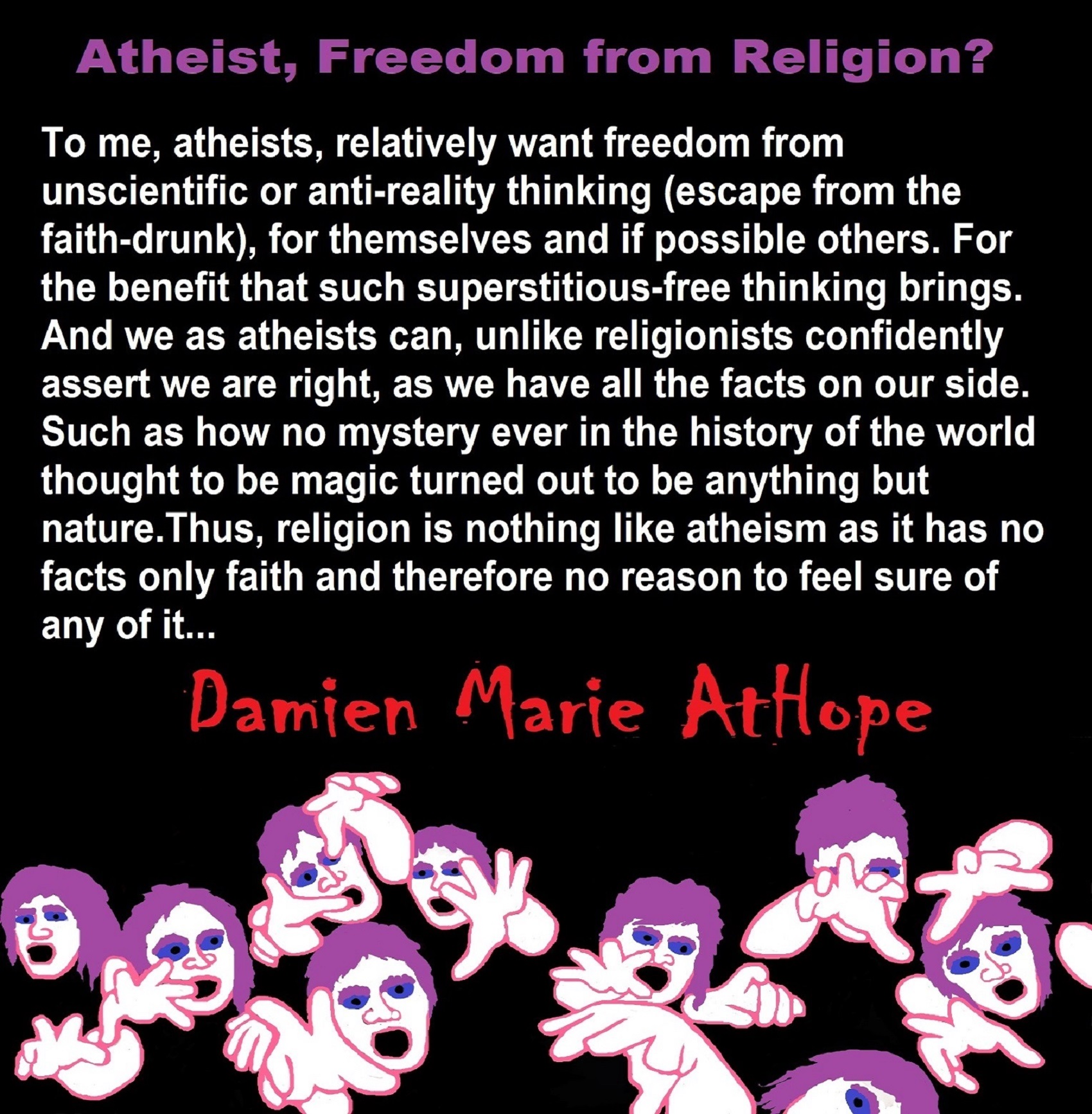
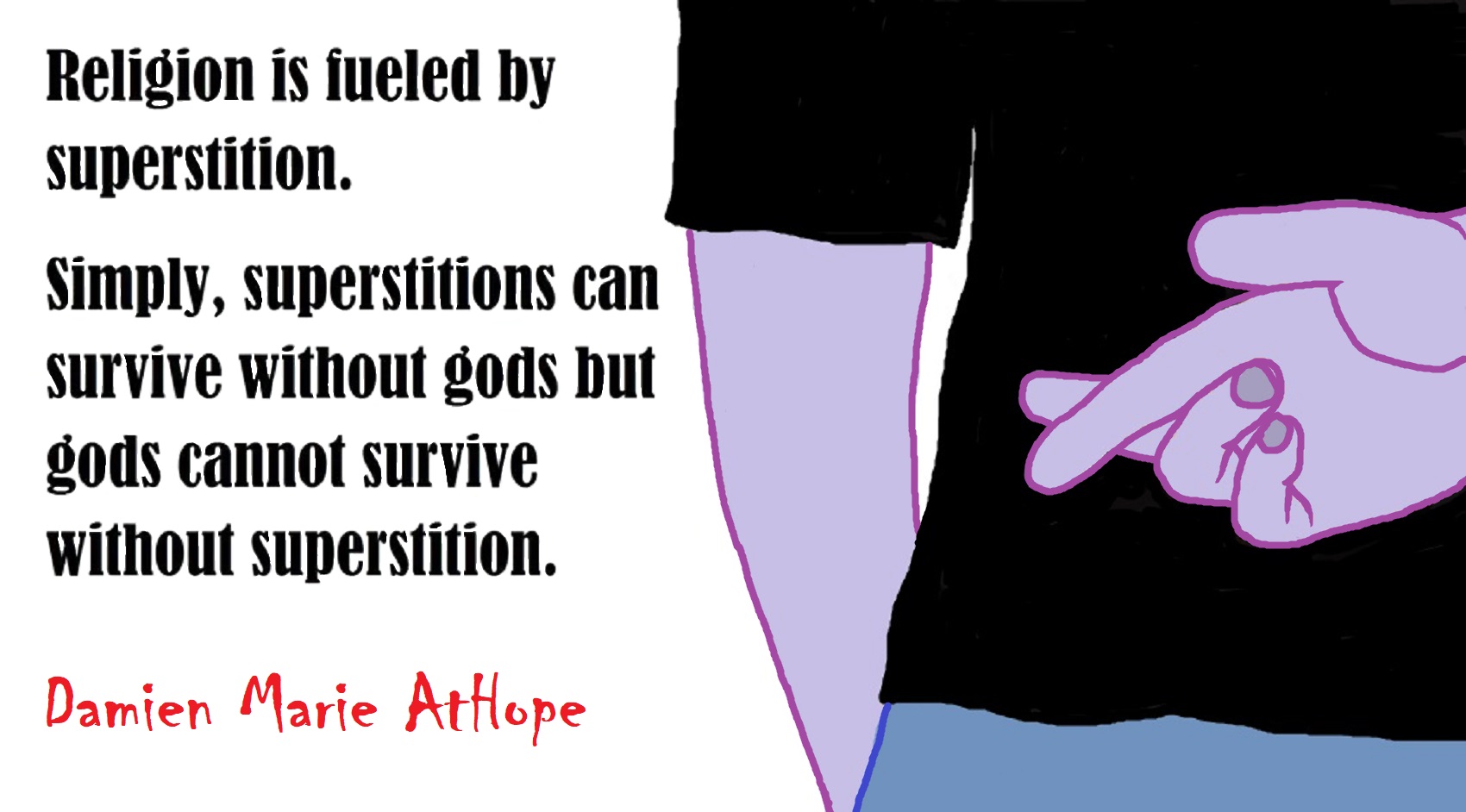
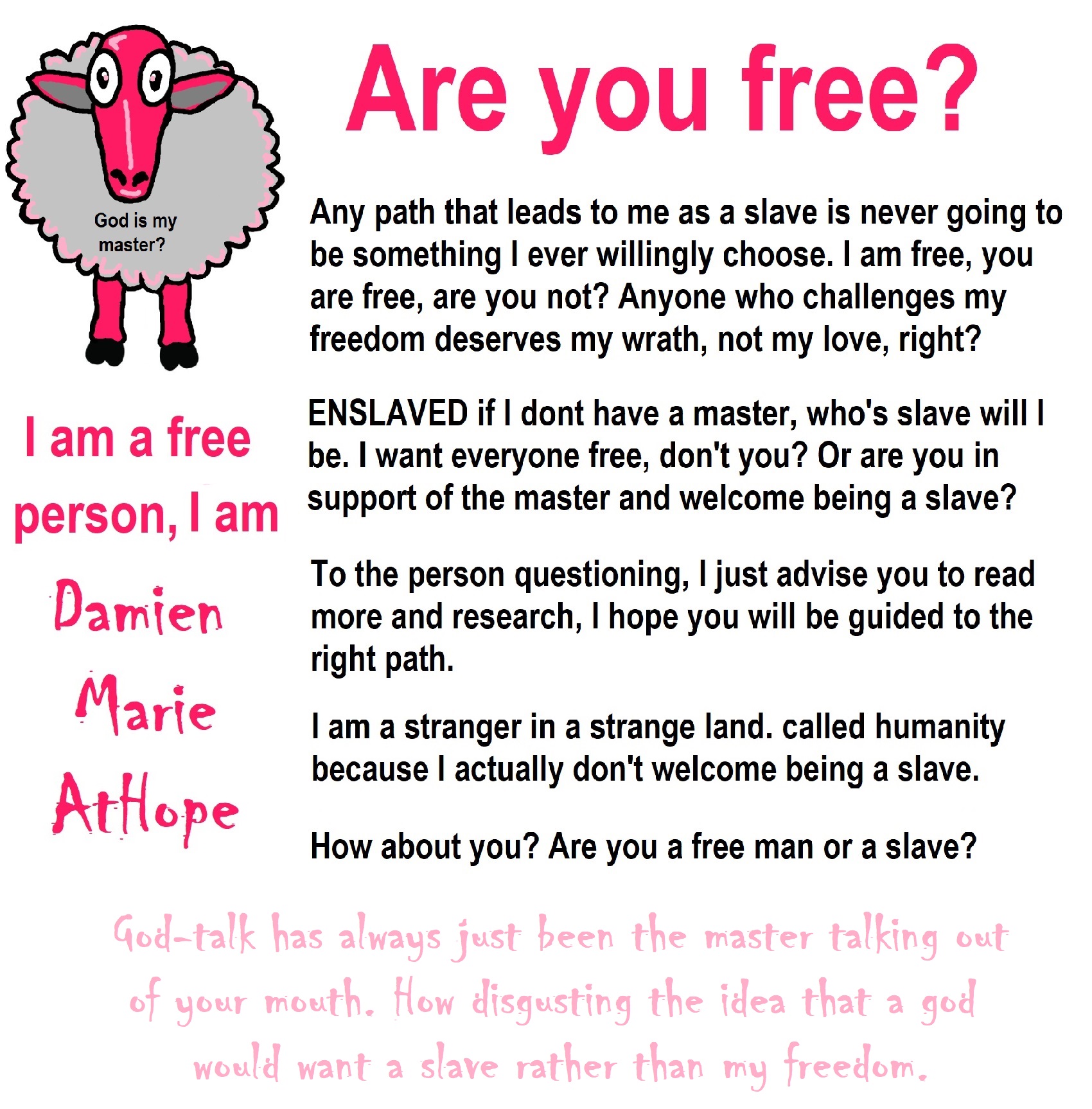

“Theists, there has to be a god, as something can not come from nothing.”
Well, thus something (unknown) happened and then there was something. This does not tell us what the something that may have been involved with something coming from nothing. A supposed first cause, thus something (unknown) happened and then there was something is not an open invitation to claim it as known, neither is it justified to call or label such an unknown as anything, especially an unsubstantiated magical thinking belief born of mythology and religious storytelling.

While hallucinogens are associated with shamanism, it is alcohol that is associated with paganism.
The Atheist-Humanist-Leftist Revolutionaries Shows in the prehistory series:
Show two: Pre-animism 300,000 years old and animism 100,000 years old: related to “Anarchism and Socialism”
Show tree: Totemism 50,000 years old: related to “Anarchism and Socialism”
Show four: Shamanism 30,000 years old: related to “Anarchism and Socialism”
Show five: Paganism 12,000 years old: related to “Anarchism and Socialism”
Show six: Emergence of hierarchy, sexism, slavery, and the new male god dominance: Paganism 7,000-5,000 years old: related to “Anarchism and Socialism” (Capitalism) (World War 0) Elite and their slaves!
Prehistory: related to “Anarchism and Socialism” the division of labor, power, rights, and recourses: VIDEO
Pre-animism 300,000 years old and animism 100,000 years old: related to “Anarchism and Socialism”: VIDEO
Totemism 50,000 years old: related to “Anarchism and Socialism”: VIDEO
Shamanism 30,000 years old: related to “Anarchism and Socialism”: VIDEO
Paganism 12,000 years old: related to “Anarchism and Socialism” (Pre-Capitalism): VIDEO
Paganism 7,000-5,000 years old: related to “Anarchism and Socialism” (Capitalism) (World War 0) Elite and their slaves: VIEDO
Paganism 5,000 years old: progressed organized religion and the state: related to “Anarchism and Socialism” (Kings and the Rise of the State): VIEDO
Paganism 4,000 years old: related to “Anarchism and Socialism” (First Moralistic gods, then the Origin time of Monotheism): VIEDO
I do not hate simply because I challenge and expose myths or lies any more than others being thought of as loving simply because of the protection and hiding from challenge their favored myths or lies.
The truth is best championed in the sunlight of challenge.
An archaeologist once said to me “Damien religion and culture are very different”
My response, So are you saying that was always that way, such as would you say Native Americans’ cultures are separate from their religions? And do you think it always was the way you believe?
I had said that religion was a cultural product. That is still how I see it and there are other archaeologists that think close to me as well. Gods too are the myths of cultures that did not understand science or the world around them, seeing magic/supernatural everywhere.
I personally think there is a goddess and not enough evidence to support a male god at Çatalhöyük but if there was both a male and female god and goddess then I know the kind of gods they were like Proto-Indo-European mythology.
This series idea was addressed in, Anarchist Teaching as Free Public Education or Free Education in the Public: VIDEO
Our 12 video series: Organized Oppression: Mesopotamian State Force and the Politics of power (9,000-4,000 years ago), is adapted from: The Complete and Concise History of the Sumerians and Early Bronze Age Mesopotamia (7000-2000 BC): https://www.youtube.com/watch?v=szFjxmY7jQA by “History with Cy“
Show #1: Mesopotamian State Force and the Politics of Power (Samarra, Halaf, Ubaid)
Show #2: Mesopotamian State Force and the Politics of Power
Show #3: Mesopotamian State Force and the Politics of Power (Uruk and the First Cities)
Show #4: Mesopotamian State Force and the Politics of Power (First Kings)
Show #5: Mesopotamian State Force and the Politics of Power (Early Dynastic Period)
Show #6: Mesopotamian State Force and the Politics of Power
Show #7: Mesopotamian State Force and the Politics of Power (Sargon and Akkadian Rule)
Show #9: Mesopotamian State Force and the Politics of Power (Gudea of Lagash and Utu-hegal)
Show #12: Mesopotamian State Force and the Politics of Power (Aftermath and Legacy of Sumer)

The “Atheist-Humanist-Leftist Revolutionaries”
Cory Johnston ☭ Ⓐ Atheist Leftist @Skepticallefty & I (Damien Marie AtHope) @AthopeMarie (my YouTube & related blog) are working jointly in atheist, antitheist, antireligionist, antifascist, anarchist, socialist, and humanist endeavors in our videos together, generally, every other Saturday.
Why Does Power Bring Responsibility?
Think, how often is it the powerless that start wars, oppress others, or commit genocide? So, I guess the question is to us all, to ask, how can power not carry responsibility in a humanity concept? I know I see the deep ethical responsibility that if there is power their must be a humanistic responsibility of ethical and empathic stewardship of that power. Will I be brave enough to be kind? Will I possess enough courage to be compassionate? Will my valor reach its height of empathy? I as everyone, earns our justified respect by our actions, that are good, ethical, just, protecting, and kind. Do I have enough self-respect to put my love for humanity’s flushing, over being brought down by some of its bad actors? May we all be the ones doing good actions in the world, to help human flourishing.
I create the world I want to live in, striving for flourishing. Which is not a place but a positive potential involvement and promotion; a life of humanist goal precision. To master oneself, also means mastering positive prosocial behaviors needed for human flourishing. I may have lost a god myth as an atheist, but I am happy to tell you, my friend, it is exactly because of that, leaving the mental terrorizer, god belief, that I truly regained my connected ethical as well as kind humanity.
Cory and I will talk about prehistory and theism, addressing the relevance to atheism, anarchism, and socialism.
At the same time as the rise of the male god, 7,000 years ago, there was also the very time there was the rise of violence, war, and clans to kingdoms, then empires, then states. It is all connected back to 7,000 years ago, and it moved across the world.
Cory Johnston: https://damienmarieathope.com/2021/04/cory-johnston-mind-of-a-skeptical-leftist/?v=32aec8db952d
The Mind of a Skeptical Leftist (YouTube)
Cory Johnston: Mind of a Skeptical Leftist @Skepticallefty
The Mind of a Skeptical Leftist By Cory Johnston: “Promoting critical thinking, social justice, and left-wing politics by covering current events and talking to a variety of people. Cory Johnston has been thoughtfully talking to people and attempting to promote critical thinking, social justice, and left-wing politics.” http://anchor.fm/skepticalleft
Cory needs our support. We rise by helping each other.
Cory Johnston ☭ Ⓐ @Skepticallefty Evidence-based atheist leftist (he/him) Producer, host, and co-host of 4 podcasts @skeptarchy @skpoliticspod and @AthopeMarie
Damien Marie AtHope (“At Hope”) Axiological Atheist, Anti-theist, Anti-religionist, Secular Humanist. Rationalist, Writer, Artist, Poet, Philosopher, Advocate, Activist, Psychology, and Armchair Archaeology/Anthropology/Historian.
Damien is interested in: Freedom, Liberty, Justice, Equality, Ethics, Humanism, Science, Atheism, Antiteism, Antireligionism, Ignosticism, Left-Libertarianism, Anarchism, Socialism, Mutualism, Axiology, Metaphysics, LGBTQI, Philosophy, Advocacy, Activism, Mental Health, Psychology, Archaeology, Social Work, Sexual Rights, Marriage Rights, Woman’s Rights, Gender Rights, Child Rights, Secular Rights, Race Equality, Ageism/Disability Equality, Etc. And a far-leftist, “Anarcho-Humanist.”
I am not a good fit in the atheist movement that is mostly pro-capitalist, I am anti-capitalist. Mostly pro-skeptic, I am a rationalist not valuing skepticism. Mostly pro-agnostic, I am anti-agnostic. Mostly limited to anti-Abrahamic religions, I am an anti-religionist.
To me, the “male god” seems to have either emerged or become prominent around 7,000 years ago, whereas the now favored monotheism “male god” is more like 4,000 years ago or so. To me, the “female goddess” seems to have either emerged or become prominent around 11,000-10,000 years ago or so, losing the majority of its once prominence around 2,000 years ago due largely to the now favored monotheism “male god” that grow in prominence after 4,000 years ago or so.
My Thought on the Evolution of Gods?
Animal protector deities from old totems/spirit animal beliefs come first to me, 13,000/12,000 years ago, then women as deities 11,000/10,000 years ago, then male gods around 7,000/8,000 years ago. Moralistic gods around 5,000/4,000 years ago, and monotheistic gods around 4,000/3,000 years ago.
To me, animal gods were likely first related to totemism animals around 13,000 to 12,000 years ago or older. Female as goddesses was next to me, 11,000 to 10,000 years ago or so with the emergence of agriculture. Then male gods come about 8,000 to 7,000 years ago with clan wars. Many monotheism-themed religions started in henotheism, emerging out of polytheism/paganism.

Damien Marie AtHope (Said as “At” “Hope”)/(Autodidact Polymath but not good at math):
Axiological Atheist, Anti-theist, Anti-religionist, Secular Humanist, Rationalist, Writer, Artist, Jeweler, Poet, “autodidact” Philosopher, schooled in Psychology, and “autodidact” Armchair Archaeology/Anthropology/Pre-Historian (Knowledgeable in the range of: 1 million to 5,000/4,000 years ago). I am an anarchist socialist politically. Reasons for or Types of Atheism
My Website, My Blog, & Short-writing or Quotes, My YouTube, Twitter: @AthopeMarie, and My Email: damien.marie.athope@gmail.com

